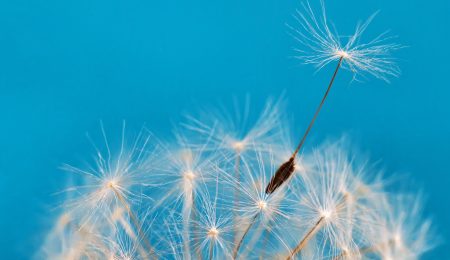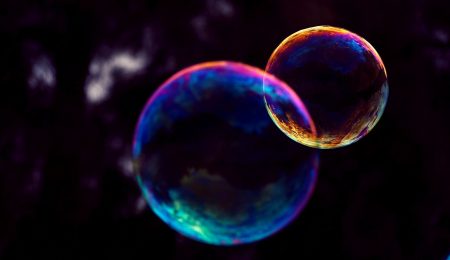Q: Are love and that first power to be what we are the same thing? I sense the same span in love and that power from before birth and after death.
John: What we really are is love, but it isn’t human love. Our experience of love is based on human love, and what we really are isn’t first human. In our selves, that isn’t directly relatable because it is in ourselves that we experience that what we are is human. But when you hold a new-born and you are just deeply quietly listening, within, what you see in a newborn isn’t something that’s human. What we see there is something that in our selves is not comprehensible. We simply, directly know something in what we see, and our past doesn’t tell us the meaning of what we know we see.
Everything that we’ve learned doesn’t inform us of what we know we see. In a newborn we see depth of beingness not yet adorned in humanness. In that seeing, we are relating directly to something of what we really are, not yet known in our selves, but we know it in the baby. As the baby is being nurtured by our humanness, the baby comes into its humanness, and the love that’s there also becomes human.
The potential of our humanness isn’t based on our selves. It’s based on what is deeper, within, than our humanness. Awakened to that, our humanness opens in a way that is uncommon.
Human love is connected right into personal love, but the much deeper levels of the personal span deeper, within, than our humanness.
Q: All of that richness and depth can come through the person?
John: That’s the potential of our person.
Q: And when you were speaking about the last per cent, I got a sense of what you actually did, or what happened inside of you when that last per cent went. It’s like what I know in a baby, but fully realized and freed. When you say you’re more than available, is that the alien love or the pre-human love freed?
John: Freed into the human.
Q: Is the sense of through all space, is it literal, in every atom?
John: If you’re being it in your self and in person, yes.
Q: Is that how you fill everything?
John: It’s how everything that is mine is filled, without me being what is mine, and, in that, I am not mine.
Q: Can you say whose or what’s you are?
John: What is deeper than human, and everything deeper than that. It isn’t just what is deeper, within, than what’s human.
Q: Is that where the line of love goes all the way back to?
John: Yes, but as soon as it goes deeper within than what is human, in your self you can no longer relate, which means that in your self your own conditioning forbids that you go there. Going there would directly threaten the existence of your self. That’s what it would feel like.
Q: And the love for you that I lean into, at that stage I probably wouldn’t have any support or feedback of the feeling of that.
John: That’s right. It’s a little like turning into what you know you see in a newborn, and in turning into that you also then know that your whole self and life as you’ve known it are gone.
Q: Choosing to die? What looks like that?
John: It isn’t a choice to die. It’s your direct response, as awareness, to be what you know you are seeing. In your response to that, you’ll meet the threshold of death, the death of your whole relationship with your self and your life. Your self remains. Your life remains. The old way of relating is gone. Then that which precedes your humanness now has humanness, a self, and a whole life, and you are not any of it, expanding into all of it.
Q: If human love is a rope, I feel like what you’re inviting me to is the finest thread that runs the center of that rope. All the other strands come off.
John: Yes.
Q: And that’s what you did. You followed a filament. It’s like the eye of the needle. Only that thread goes through.
John: Nothing opens humanness like being what precedes it, in it.
Q: And that is what humanness was meant for.
John: And that filling our selves is what the self is meant for. Without that, the self won’t be very human. It will be quite a bit inhumane. Just put it under some pressure and it all shows.
Q: Is it the weakest weakness that threads that needle?
John: Yes. Everything that that thread holds together in your self and in your life all stays with you when you die. Anything held together not by that thread will pass away when you die.
Q: What brings us to that thread?
John: Not human intelligence, but the intelligence, within, that just precedes it.
Q: Is it the same place where our real choices are made, and we simply see their effects through our human intelligence?
John: And then through our mental and emotional intelligence, which is so far removed from what is first real.
Q: Is the opening of the brain to move in that intelligence that’s prior to human intelligence, or is it to build a bridge between that intelligence and human intelligence?
John: That bridge-building is done from within what precedes your humanness, through your humanness, through your self, and through your life; all from the inside out. To really face it is to face what you really are and most deeply, mysteriously, within, long for but in your self, fear; most fear. In your self, in the self, you would rather physically die than face that and enter that.
Many would rather die than to be fundamentally wrong. Many would rather die than be wrong. And deeper than that, most would rather die than be what they really are.
Q: Why is that?
John: Because in your self it is easier to meet the end of your life, for real, than to meet the end of personal and held-together meaning, even though the most deep and quiet ache, within, is to not only meet that but to be that.
Q: With all personal preference going, it’s like belonging to everyone and everything.
John: You belong to meaning, without that first being the meaning of something.
Q: And that’s when you’re given – completely, totally given.
John: Which makes your ground no longer what you can relate to as being meaningful. When you’re being meaning, what you are being precedes anything meaningful.
Q: So to be love, to actually be it, there’s no…
John: Dependency on your human experience of love.
Q: And that’s like dying.
John: That goes way beyond physical dying. Everyone physically dies. Few will die being meaning, not held together by anything meaningful.
That thread that is there in all of your self, throughout your whole life, of that which precedes what is human within is incorruptible, unbreakable, always there. But it being always there doesn’t mean that that’s what you are being. What you really are is always there despite what you are being.
Once we’ve separated from that, what we are here for is first, before anything, to return to that. The return to it is our entrance to it. Being it. Then, what we are really here for, from the innermost outwards, begins.
In you, awareness, being what you really are, your destiny in this life is one with everything after this life. It’s real. Separate from that, in this life, you are not quite real, using all of the powers of your self – thought and feeling, will and emotion – to compensate for that lack, which seals you directly being that lack. It seals you being separate from what you really are.
Any of this that isn’t perfectly clear will be, for sure, after you’ve died.
Anything that we are being and doing in our life that isn’t quietly seated in our humanness is an illusion.
Q: Can you say more about what that means to be quietly seated in your humanness?
John: Gentled and quieted in your heart. Open and soft in your heart.






